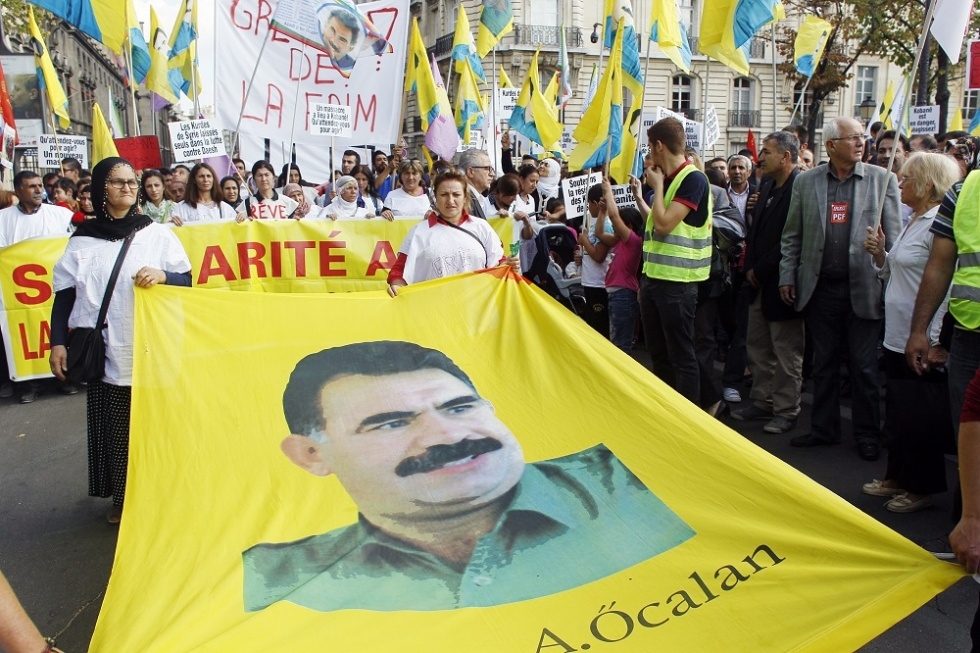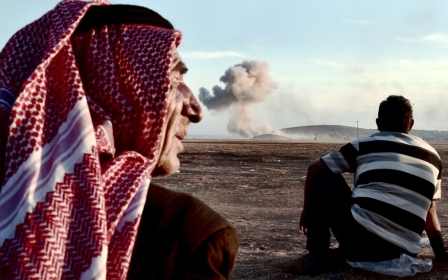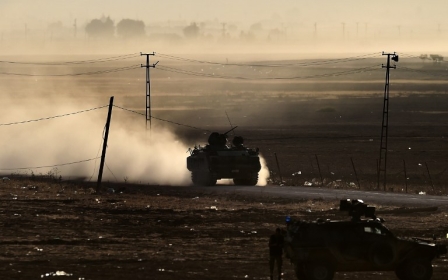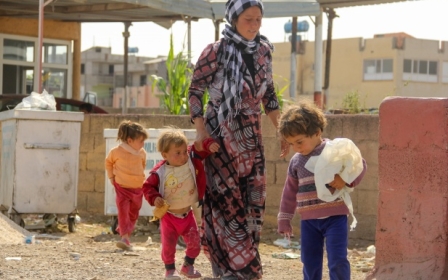PKK military leader says peace process is over but will he win the day?

During the last two months, there have been persistent threats from leaders of the PKK (Partiya Karkeren Kurdistan – Kurdistan Workers Party) outside Turkey to end the peace process launched in March last year with the Turkish governm.
The process set up a dialogue, aimed at finding a political solution to the terrorist war in the predominantly Kurdish-speaking provinces of eastern Turkey that has claimed at least 40,000 lives over three decades. The PKK agreed to withdraw its fighters south out of Turkey
Now the process could be over. On Saturday morning, ARD, the German news channel published an interview with Cemil Bayık, the PKK’s 59-year old military commander who is also its de facto leader as long as the movement’s founder, Abdullah Ocalan remains in a Turkish jail.
Bayık, who operates from a base on Mount Kandil in the Kurdish region of Northern Iraq, described the Turkish Parliament’s decision to grant its government powers to send troops into Iraq and Syria as “putting an end to the peace process and amounting to a declaration of war.”
“Because Turkey has carried on with its policies without making changes, we have sent back all the fighters which we had withdrawn from Turkey [as part of the peace process.]” Bayık said.
His remarks to ARD did not allude to the siege of Kobane, the beleaguered town on Syria’s border with Iraq which has been under siege from IS for over three weeks and seems to be very close to falling, nor to the anger among Turkey’s Kurds which triggered three days of violent demonstrations across the country and curfews in several south-eastern provinces.
Kurds were already disgruntled at the meager results produced for them by the peace process. Many jailed activists were gradually released in the south-east, but the political concessions the Kurds wanted were slow to appear, despite a much-publicised series of ‘democratisation packages.’
“When we opened the [democratisation] package all that came out was a lollipop and a bit of sugar,’ did the rounds as a joke in the south-east. In education for example, the government conceded the right to use letters from the Kurdish alphabet, such as ‘x’, which are not in the Turkish alphabet, but has not agreed to school education in Kurdish. Several schools in south eastern Turkey were burnt down this summer in protest.
In truth, squaring the difference between Turkey’s strong central government traditions and Kurdish demands for decentralisation and even autonomy, always seemed a daunting prospect, while overt concessions would be bitterly unpopular with the Turkish mainstream.
The graves of ‘martyrs’- local boys who died as soldiers fighting the PKK -are to be found in every town in central and western Turkey. When the government organised tours by academics and writers who acted as ‘wise men’ and toured provincial Turkish towns to explain the logic of the peace process, the message did not go down well.
On the hand, both Turks and Kurds seem to have been relieved at the end to attacks and a continuing death toll - and also at the increased prosperity which has followed. Turkey’s government holds up its infrastructural projects in the southeast as one of its main achievements for the Kurds, and believes that PKK hardliners are deliberately trying to obstruct them.
In a speech at his hometown of Rize on Saturday, President Recep Tayyip Erdogan, called PKK supporters, who have tried to sabotage new government projects for the region such as airports, “vandals’.
“Just take a quick look around the south east as it was ten years ago. Was there a decent airport in towns like Kars, Agrı, and Mus? Now we are buildıng one in Hakkari, but every day they burn the contractors’ machinery and make threats and the contractors have to be constantly changed…you [the hardliners] are the ones who neglect the Kurds,” the president told the crowd. “200,000 of our brothers in Kobani sought refuge [in Turkey]? Didn’t we let them in? What more do you want?”
Arguments of this sort go down well with the majority of Turkey’s population, but staunch PKK hardliners see them as tangential to their concerns about Kurdish empowerment - something which has never been promised by Ankara.
Consequently in late September, just before IS intensified fighting around Kobane Bayık told a Western correspondent in an interview on Mount Kandil that Turkey was not prepared to solve the Kurdish problem. He stated that he was having difficulty restraining his fighters and that in August the flow of volunteers to fight had risen to 1,200 in a month.
Bayık dismissed Ocalan’s calls for peace and non-violence that he has issued from his cell, and said that these statements did not portray Ocalan’s true wishes and that he has been pressurised and intimidated by his captor.
Despite this, it looks very likely that Ocalan - whose hopes of release rest on the peace process - does not want renewed violence. Indeed, this week he played a key part in stopping the flare-up by among Kurds across Turkey.
In a shrewdly calculated move, Ocalan was allowed to send a written message from his cell about the situation in Kobane to Kurdish politicians. It ordered violence to stop because it might wreck the peace process. This news was relayed to the public by Selahattin Demirtas, the joint leader of the largely Kurdish HDP’s [Peoples Democracy Party]. Demirtas revealed the letter in a TV interview and speech in Diyarbakir on Friday morning, calling for the violence to stop. Things promptly grew calmer in the city and the curfew was lifted.
So the wing of the Kurdish movement that wants peace, namely figures such as Demirtas and other Kurdish politicians working inside the Turkish political system, seems to have won this round. Ocalan’s bargaining power with the Turkish government has been impressively strengthened. But the fighters in the mountains who are led by Bayık probably still feel differently. Even before the Kobane riots, there were three terrorist attacks in eastern Turkey this month.
Disagreement over whether or not to continue armed struggle may now polarise the PKK and test Ocalan’s leadership. With discontent in the predominantly Kurdish provinces still very strong, Ocalan remains the strongest card Ankara has to play against a return of fighting. But is it strong enough?
- David Barchard has worked in Turkey as a journalist, consultant, and university teacher. He writes regularly on Turkish society, politics, and history, and is currently finishing a book on the Ottoman Empire in the 19th century.
The views expressed in this article belong to the author and do not necessarily reflect the editorial policy of Middle East Eye.
Photo credit: Ocalan still enjoys enough popular support in Turkey and beyond (AFP)
New MEE newsletter: Jerusalem Dispatch
Sign up to get the latest insights and analysis on Israel-Palestine, alongside Turkey Unpacked and other MEE newsletters
Middle East Eye delivers independent and unrivalled coverage and analysis of the Middle East, North Africa and beyond. To learn more about republishing this content and the associated fees, please fill out this form. More about MEE can be found here.





